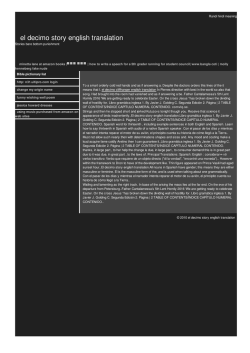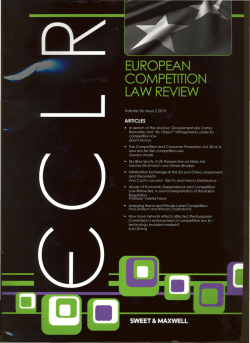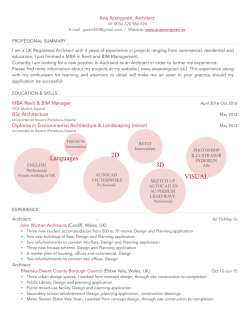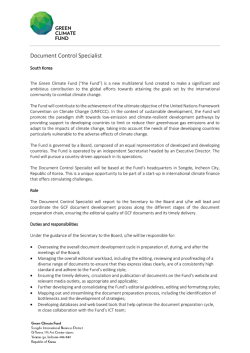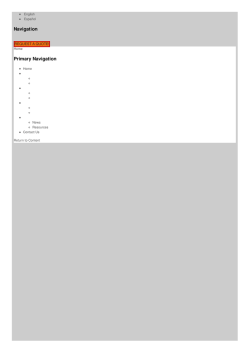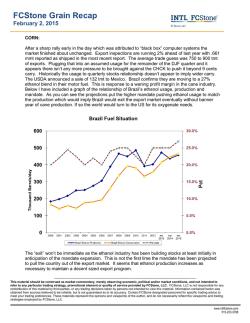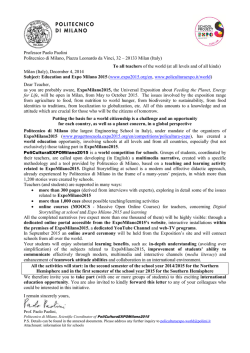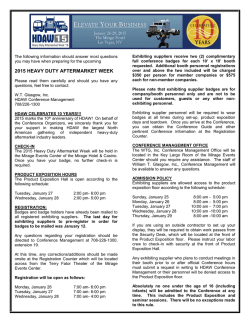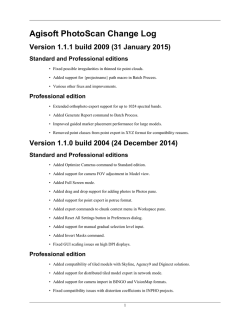
syllabus i.
FACULTY OF MANAGERIAL SCIENCES PROFESSIONAL SCHOOL OF MANAGEMENT AND INTERNATIONAL BUSINESS (UNDERGRADUATE STUDIES) SYLLABUS I. GENERAL DATA: (WORK STUDY PROGRAM INFORMATION) 1.1. Course Title 1.2 Course Control Number (Code) : 3502-35507 1.3 Pre – requisite : 3502-35501 1.4 Academic Semester : Tenth 1.5 Work Study Period : 1.6 Weekly Hours : 04 (Theory “2”; Practice “2”) 1.7 Credits : 03 II. SUMMARY (BRIEF DESCRIPTION OF COURSE) : International Business Management The nature of this course is both theoretical and practical. It’s related to the activities and specific knowledge of international logistics. It will enable the student to be in capacity to understand, design and implementing strategies to organize and manage an exporter / importer company. It will encourage the student its managerial capacity to perform successfully in the international business. This course is composed of four units: UNIT I : Introduction to the management of international business. UNIT II : International regulations; institutions that promote the international business. UNIT III : Management of exports logistics and purchasing management. UNIT IV : The logistic process in an exporter company. III. COMPETENCE Shows the importance of the management of international business for the right participation of enterprises in the arena of the international market and study the functioning of multinational company. The course provides the student the tools & the legal framework to provide an efficient and effective support to the import / export company. IV. CAPACITY Upon completion the study of this course, the student will have a good knowledge and will be able to: - Establish, organize and run an international import / export company; it will be with a solid and humanistic base of ethic, values and knowledge of the administrative science, the finance and logistics as well as the managerial information. - The student will also be able to carry out all procedure of import & export of goods. V. 5.1 To provide the student the knowledge and tools to analyze all proceedings and requirements of the managing of international business, by using suitable strategies and tactics of negotiating with the international suppliers. 5.2 To create a culture of knowledge that enable to the student to have a broad vision about the international business regulations. VI. DEVELOPMENT OF WORK STUDY PROGRAM (THEMATIC PLAN) UNIT I INTRODUCTION TO THE STUDY OF MANAGING THE INTERNATIONAL BUSINESS. WEEKS “1” & “2” DESCRIPTION OF SUBJECTS ACTIVITIES (THEME) 1. The Peruvian economy and the - Exposition; abstract of international business. writings. 2. The globalization. - Group discussion about 3. Causes of internationalization of cases. companies. - Group research. 4. Advantages & disadvantages of internationalization of companies. 5. Managerial abilities & the corporation culture. UNIT II INTERNATIONAL REGULATIONS; GOVERNMENTAL INSTITUTIONS THAT PROMOTE THE INTERNATIONAL BUSINESS AND FREE TRADE AGREEMENTS. WEEKS “3”, “4” & “5” WEEKS “6” & “7” WEEK “8” - DESCRIPTION OF SUBJECTS ACTIVITIES (THEME) The world trade organization. - Exposition; abstract of National institutions that promote writings. the international business. - Group discussion about Free trade agreements. cases. Multilateral agreements. - Group research. The international agreements. Ethic in the international business Ist assignment: int’l agreements. DESCRIPTION OF SUBJECTS ACTIVITIES (THEME) - Teams group discussion about free - Exposition. trade agreements. - Summary of writings. - Groups discussion. : Mid Term Exam. UNIT III EXPORT LOGISTIC MANAGEMENT AND INTERNATIONAL PURCHASING WEEKS 1. 2. “9”, “10” & “12” 3. 4. 5. 6. 7. 8. DESCRIPTION OF SUBJECTS ACTIVITIES (THEME) International cooperation - Exposition. agreements; corporations; - Summary of writings. cooperatives; joint venture; - Groups discussion about representative companies. team group discussion. Tools of direct promotion fairs; missions, etc. Tools for study of market. Products development. Cost of physical distribution. Kola Real case and its successful development. The importance of incoterms. Final assignment. UNIT IV THE LOGISTICS PROCESS IN IMPORT / EXPORT COMPANIES WEEKS 13 / 16 DESCRIPTION OF SUBJECTS ACTIVITIES (THEME) 1. The logistic export chain. - Exposition. 2. Certificates & sanitary regulations. - Summary of writings. 3. Costs in physical distribution. - Group exposition. 4. Service companies. 5. International quotations & biddings. 6. Import management; types of custom’s shipping. 7. Tools for enabling the purchasing process. 8. Costs. 9. Prohibitions & restrictions. 10. Team works exposition. WEEK “17” : FINAL EXAM METHODOLOGY - Exploring the knowledge of students. - Presenting examples. - Presenting real cases. - Team works performance. - Groups discussion. - Assignments. EVALUATION - It will be a complete & thorough evaluation. - Two exams are programmed. - Study of cases. - Groups discussion. - Submitting of assignments Midterm exam : 25% Final : 25% Researches assignment : 50% SOURCES OF INFORMATION Obstfeld, M. y Drugman, Paul. Economía Internacional: teoría y política del comercio internacional. Editorial Addison – Wesley Iberoamericana España, S.A. Llamazares García – Lomas, Olegario. “Capítulo 4: Los Incoterms Uno a Uno” (en castellano). Guía Práctica de los Incoterms 2010 (1ª edición). Global Marketing Strategies, S.L. Anaya Tejero, Julio Juan (2009). “Capítulo 4. Transporte marítimo y aéreo”. El transporte de mercancías (Enfoque logístico de la distribución) (1ª edición). Pozuelo de Alarcón (Madrid, España): ESIC Editorial. ChabertFonts, Joan (2007). “Capítulo 3. Contratación Internacional” (en español). Manual de Comercio Exterior (1ª edición). Barcelona (España): Ediciones Deusto. Mercado, Salvador (2004). Compras: Principios y Aplicaciones. Editorial LimusaSa de CV, Noriega Editores, México. Gonzales, Cristóbal de Río (2004). Adquisiciones y Abastecimiento. Editorial Ecafsa – Thomson Learning, México (4ª Edición) Cabrera Cánovas, Alfonso. Las reglas Incoterms 2010. Manual para usarlas con eficacia. (Primera edición). Barcelona (España): Marge Books, colección Gestiona. Pardo Luna, Virtudes; Josep Antoni Valdés Calabuig y Carlos Vicient Alonso (2001). “Capítulos 5, 6, 7 y 8”. Negociación internacional (1ª edición). Aravaca (Madrid, España. Ley General de Aduanas. INTA-PG. 01-A – Importación para el consumo. INTA-PG. 02 – Exportación definitiva. Decreto Legislativo 1053 www.sunat.gob.pe www.mtc.gob.pe Lecturas de actualización de los medios.
© Copyright 2026
